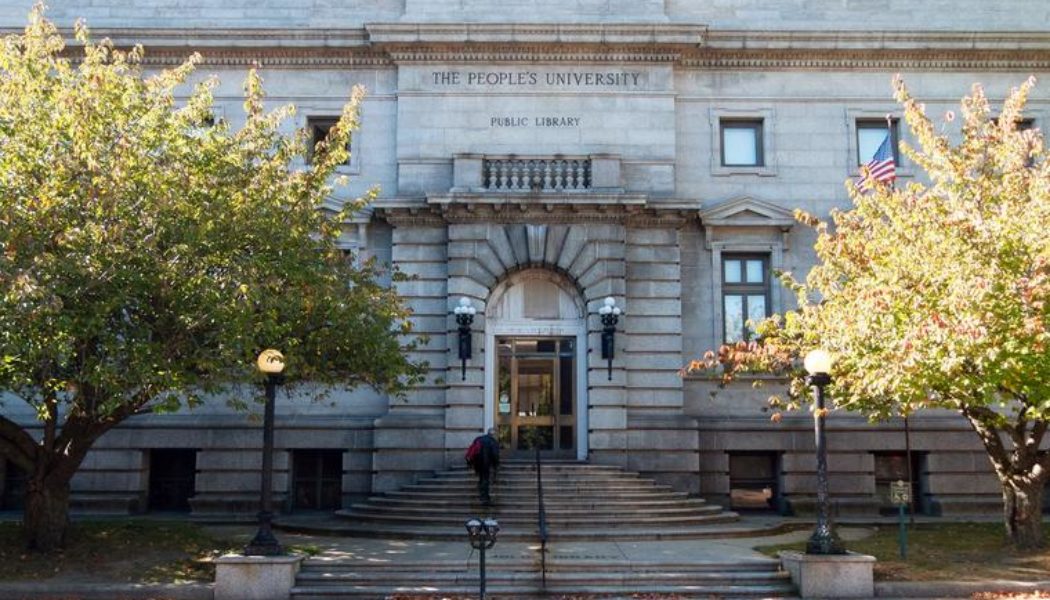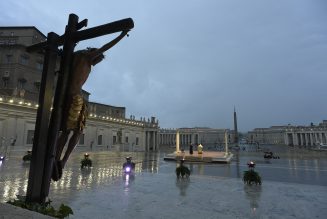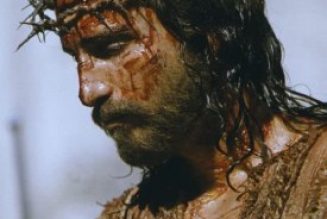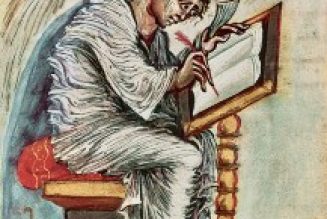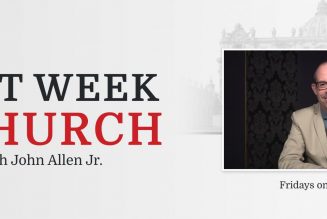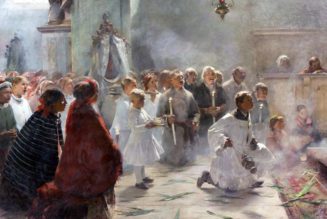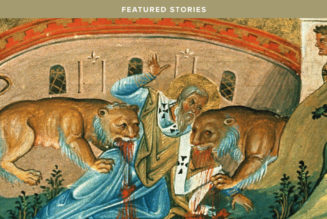
COMMENTARY: We can learn much from books, but how do we know which books are worth reading?
I grew up in Fall River, Massachusetts, a city steeped in history and shaped by the rise and fall of its cotton textile industry. By 1920, Fall River had become the largest textile-producing center in the United States, ushering in a period of great prosperity.
From that era came magnificent Catholic churches, beautiful government buildings, and an architectural gem that was the public library. Though the city declined after the textile industry moved south, I could nonetheless be inspired by its gifts from the past.
The library, called, “The People’s University,” was of special interest to me. I was mesmerized by the inscription engraved over the doorway, Da mihi Domine scire quod sciendum est (“God give me the wisdom to know what is worth knowing”). We can learn much from books, but how do we know which books are worth reading? Entering the library was much like entering a cathedral. What was housed inside could make anyone a better person.
The inscription is taken from The Imitation of Christ, authored by Thomas à Kempis, a 15th-century priest. It is one of the most popular and best-known of all devotional books. It was as if Kempis himself was inviting me to read with the assurance that I would be imbibing something worthwhile.
Ray Bradbury informs us that he spent three days a week for 10 years in his public library, “and it’s better than college,” he remarked. “At the end of 10 years, I had read every book in the library and I’d written a thousand stories.” He was in step with the great lexicographer Samuel Johnson, who said, “A man will turn over half a library to make one book.” For Norman Cousins, “A library is the delivery room for the birth of ideas, a place where history comes to life.”
My own library is dominated by the works of Plato, Aristotle, St. Thomas Aquinas, Dante, Søren Kierkegaard, G.K. Chesterton, Gilson, Jacques Maritain, Dietrich von Hildebrand, Marshall McLuhan, James Hitchcock, Phyllis McGinley, Edith Stein, Flannery O’Connor, C.S. Lewis, José Ortega y Gasset, Nikolai Berdyaev, Karl Stern, Josef Pieper, Malcom Muggeridge, Mortimer Adler, Gerard Verschuuren, T.S. Eliot, Bishop Fulton Sheen, Walker Percy, Peter Kreeft, Martin Buber, Robert Bork, George Weigel, John Paul II and Benedict XVI. They have all provided a treasury of wisdom. It seems that they were commissioned by God to improve the mind and inspire the world. “Beware of the person of one book,” Aquinas is reputed to have said.
Adler and Robert Maynard Hutchins established the Great Books Foundation in 1947. Their purpose was to expand opportunities for people to read and talk about the great ideas that are part of Western intellectual tradition. They had a keen sense of what was worth reading and could distinguish between the “great” and the “not-so-great.”
I had a friend who confided in me that she enjoyed reading “trash,” which she defined as anything that once read is completely forgotten. Kempis would not have been pleased to hear this. What is easily forgotten may not be worth reading. To illustrate, in years past, TV Guide and the telephone directory were the most commonly read publications in the U.S. So reading for the sake of acquiring lofty knowledge has not been the main reason for picking up a book.
If one has an aspiration to be a writer, the key to his success is that he must first become a reader. He should drink in the wisdom of the ages through the wisdom of other writers. Writers and readers form a confraternity. If the pen is mightier than the sword, it is because it has been sharpened by writers worth reading.
Benjamin Wiker has written a book on how 10 books, in particular, have had seriously damaging effects worldwide. He includes Machiavelli’s The Prince, Alfred Kinsey’s Sexual Behavior in the Human Male, Karl Marx’s Communist Manifesto, and Margaret Mead’s Coming of Age in Samoa. In drawing attention to the connection between the books on his list and their disastrous consequences, he is reinforcing Thomas à Kempis’ prayer that God guide us about books that are worth reading. The corollary of his advice is to beware of those books that are potentially harmful.
In his book The Intellectual Life, Dominican Father Antonin-Gilbert Sertillanges cautions us to be wary of what we read:
“Therefore, it is often necessary in the course of one’s reading to filter what one reads so as to purify it. For that we must trust God and our better self, the self that is the child of God and in which an instinct for truth, a love for the good, will serve as a safeguard.”
St. Thomas Aquinas was able to read the works of heretics and pagans without being infected by their thought. We could say the same thing about many other writers who were sufficiently committed to the truth that they were not contaminated by error.
I remember when I was a young lad looking up at the gilded words engraved over the library doorway. They were written in stone and enunciated both a prayer and a commandment. I have never forgotten them.
